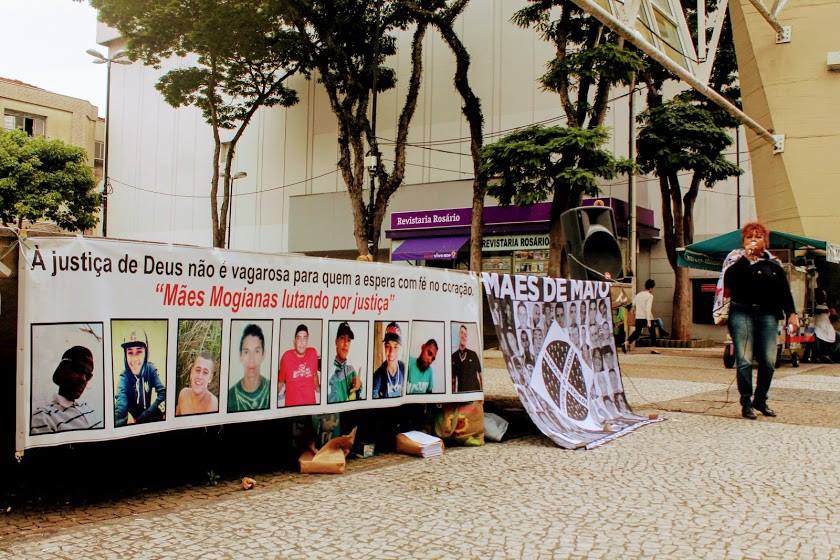Military Justice must not investigate cases of enforced disappearances, says UN report on Brazil
Adopting a critical tone, the United Nations document states that the government should take urgent measures to adapt to the international treaty on enforced disappearance
 Dona Débora, leader of the Mothers of May Movement, in an interview with Conectas on the Crimes of May.
Dona Débora, leader of the Mothers of May Movement, in an interview with Conectas on the Crimes of May.
In a report released on Wednesday, September 29, the UN expressed concern over the lack of measures taken by the Brazilian government to prevent and investigate the enforced disappearance of people. The document states, among other things, that investigations into murders and disappearances committed by public security agents and military personnel should be handled by jury trials and civilian justice systems, and not by the military justice system, as is often the case in Brazil.
The report, which adopts an unusually critical tone against the country, is the result of a series of discussions that took place earlier this month at the United Nations Committee on Enforced Disappearances, the body that monitors the implementation of the International Convention for the Protection of All Persons from Enforced Disappearance, to which Brazil has been a signatory since 2007. The committee heard members of civil society and the Brazilian government.
Impartiality of Military Justice
Referring to investigations in military courts, the experts said they are concerned about information that the State Court of Bahia had ruled that the military jurisdiction was competent in the case of the enforced disappearance of Davi Fiuza, in 2014. “The Committee reaffirms its position that, as a matter of principle, all cases of enforced disappearance must be dealt with only by the competent ordinary civilian authorities,” reads the report.
“The UN makes it clear that Brazil is violating basic principles of justice by allowing military personnel to judge their peers who are under investigation for committing willful crimes,” said Carolina Diniz, an advisor for the program to Combat Institutional Violence at Conectas.
Diniz notes that this is not the first time that an international organization has warned Brazil of the need to establish independent mechanisms of investigation. In February 2017, the Inter-American Court of Human Rights of the OAS (Organization of American States), in the sentence in which it condemned the country for crimes in the Nova Brasília Favela case, called for forensics, investigation and judgment of cases involving torture, murder or other crimes committed by agents of the State to be conducted by an agency that is separate from the defendant or defendants.
Legal case assesses role of Military Justice
In the Supreme Court, the ADI (Direct Action of Unconstitutionality) No. 5901 addresses the role of Military Justice courts. In a request for amicus curiae in the case, Conectas and the Allard K. Lowenstein International Human Rights Clinic at Yale Law School said that the lack of impartiality and independence “prevents access to justice and facilitates impunity in cases of human rights violations”. The organizations also said that “States that do not limit military jurisdiction to crimes of a strictly military nature often tolerate or cover up human rights violations committed by the armed forces”.
Read more:
Concern over black people and the Amnesty Law
The UN report also calls on Brazil to “ensure that all cases of enforced disappearance are investigated promptly, thoroughly and impartially, even if there has not been a formal criminal complaint”. In another passage, the document expresses concern with information about the enforced disappearance of black people and residents of the poor urban outskirts.
One of the most emblematic cases of enforced disappearance are the Crimes of May, which occurred 15 years ago in São Paulo. In addition to the death of hundreds of people, the episode also included a number of disappearances. The victims were primarily young black people from neighborhoods in the urban outskirts.
In May 2021, the São Paulo Public Defender’s Office, the Mothers of May Movement and Conectas submitted a petition to the Inter-American Commission on Human Rights (IACHR) asking it to recognize the international responsibility of the Brazilian State for violating the American Convention on Human Rights and the Inter-American Convention on Forced Disappearance of Persons, and also asking it to recommend that Brazil investigate and prosecute the agents involved in the human rights violations committed in this case.
The cases of enforced disappearance committed during the military dictatorship (1964-1985) are also addressed in the report. According to the committee, the Amnesty Law cannot prevent an investigation into the crimes that occurred during the country’s democratic breakdown, since the crime of disappearance must be considered a continuous crime. In this regard, the National Truth Commission, created in 2011 by the federal government, is cited by the UN as a positive aspect.
See five key points of the report:
1 – The lack of a definition of the crime of disappearance in Brazil is one of the obstacles in the way of the full implementation of the UN Convention on the topic.
2 – Brazil should prepare detailed statistics on disappeared people.
3 – Military Justice does not have the competence to investigate and judge cases of enforced disappearance when security agents are suspected.
4 – The UN Convention is applicable to crimes committed during the military dictatorship, which should be investigated.
5 – There should be recognition that the crime of enforced disappearance continues to occur even during the country’s democracy, especially against the black population.


